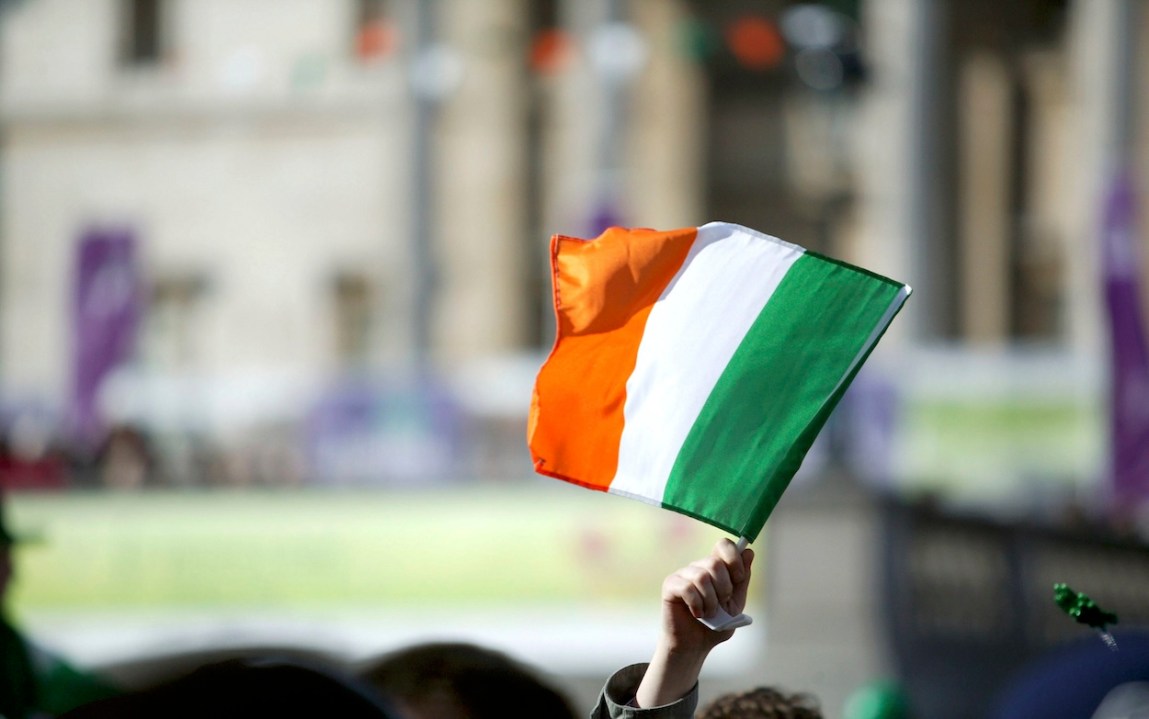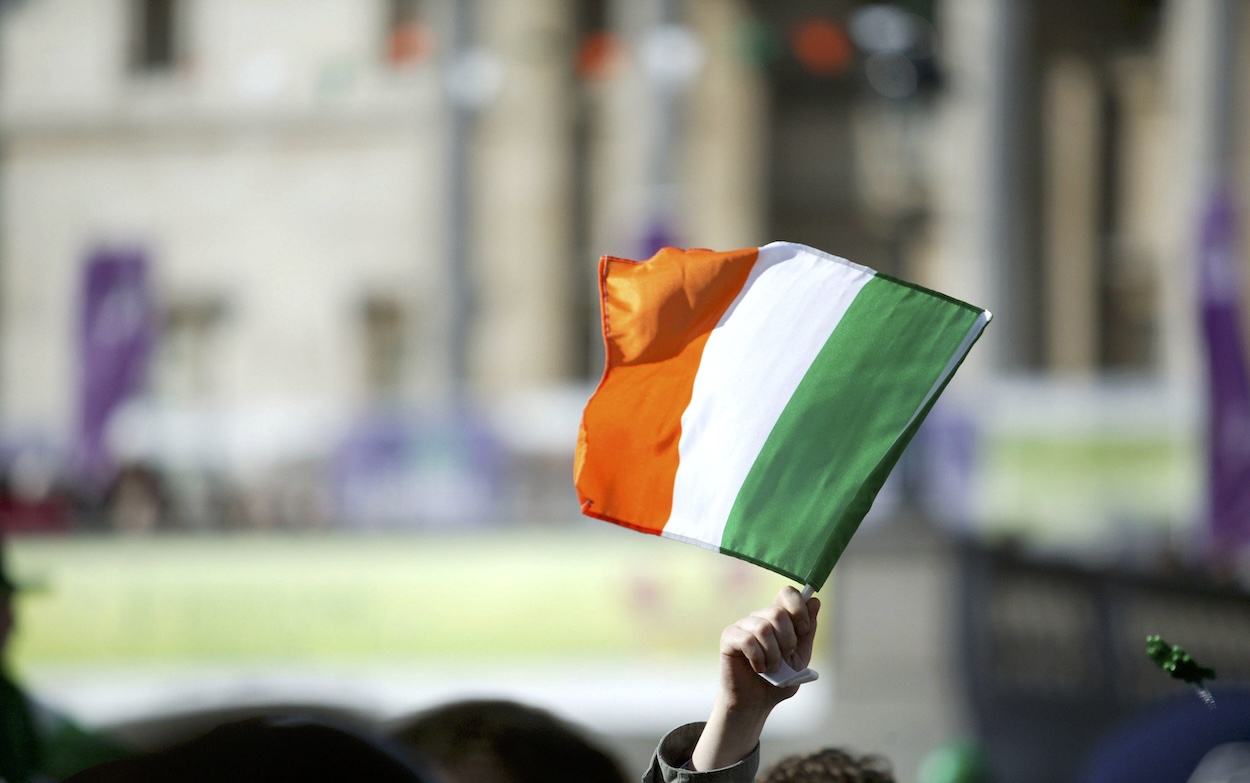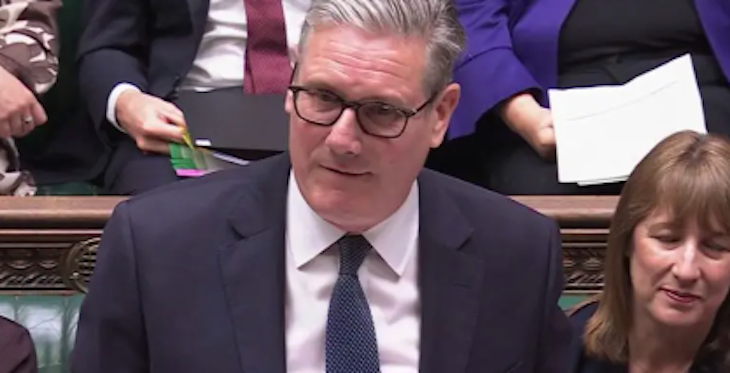The Irish problem has existed for centuries, though the nature of that problem is not always easy to define. It used to be political, though relations between English and Irish people on a personal level have usually been harmonious. There are still political problems, because identity – the question of to whom we owe our loyalty – shapes lives and creates communities. But now there is a different problem, and it’s one-sided.
Many English people are suddenly keen to present an ersatz Irishness to the world, as a form of civic virtue, to the point of claiming citizenship. Some claim to feel ‘European’, in a vague way. Others feel that being green offers the swiftest route to an ill-defined ‘romanticism’. Ah yes, it’s that old favourite, the Celtic twilight!
Oasis, for instance, those Manchester rockers who have forged a career out of rancid stupidity, are performing on their reunion tour before a tricolour that proclaims ‘Ireland Forever’. It’s true that Noel and Liam Gallagher were born to Irish parents, though as their father was a drunkard who took out his frustration on his children, theirs is not a story to commend. At recent London gigs by Fontaines D.C. and Kneecap, sizeable numbers of English fans showed up waving Irish tricolours – joining in chants of ‘Free Palestine’ – are another example of the anthropological oddity. Ed Sheeran, a third-division pop star, has also claimed he is ‘culturally Irish’, though it invites the question: what kind of culture does he have in mind? Clearly it is not the tradition which produced Synge, Yeats, Wilde, Joyce and Shaw. Nor, going back a bit further, is it the Anglo-Irish culture that gave us Sheridan, Farquhar and Goldsmith.
Those writers felt no need to wrap themselves in the flag. Joyce, the great traveller, reckoned most Irish people were happy to be so, but few wanted to live in Ireland. Living in Paris when the Irish Free State was proclaimed, he was offered a green passport – but thought his British one was good enough. Wilde, badgered by a priest who thought he had gone over to the other side, replied it was an honour to live among the race that had given the world Shakespeare, Milton and Keats. Shaw, who lived most of his long life in England, thought that if you put an Irishman on a spit, you would easily find another Irishman to turn it.
There have always been England-haters among the Irish tribes that settled elsewhere. In America the Irish element in South Boston has never moved on from an ancestral Anglophobia. Not only the British, either. ‘Southee’ is notorious for its hostility towards black people. In this country the embers of historical enmity in Liverpool are occasionally prodded into flame. Turn left out of Lime Street station, and you don’t have to walk far to find pubs that belittle everything English. It’s that fog again, which envelops the descendants of Irish folk who left that myth-encrusted isle decades ago.
There have always been England-haters among the Irish tribes that settled elsewhere
‘Romantic Ireland’s dead and gone’, wrote Yeats, whose mind was anything but foggy. ‘It’s with O’Leary in the grave.’ What a stinging rebuke that remains. Ireland has never been greener than green, as Jewish people may confirm. Its people may be jolly and humorous, or they may be petty and vindictive. They may be open-minded, or they may be bigots. In other words, they’re much like people anywhere else in the world.
As for the ‘Irish culture’ those balladeers go on about, that really means fiddles in the snug bar, bicycles on the roof, and mugs of porter chased down by tots of whisky. It’s not much of a feast. My great friend Stephen Fay could have told the cod-Irish a thing or two. His father Gerard was a star reporter on the Manchester Guardian, and his grandfather Frank helped Yeats establish the Abbey Theatre in Dublin. He told the great writer: ‘I admire you as an artist, and despise you as a human being.’
Every ‘Bloomsday’, 16 June, Stephen would gather at the Garrick Club with a group of pals to honour Ulysses and Leopold Bloom – and yes, there would be Burgundy and Gorgonzola sandwiches! When asked how Irish he really was, Stephen would smile and say: ‘I’m as green as I need to be.’ He was an authentic Irishman, and had the wit to prove it. Meanwhile, if the Irish really are as accommodating as we are told, maybe they can take those ghastly Mancunians off our hands. I’d even risk a glass of stout to toast their departure.








Comments